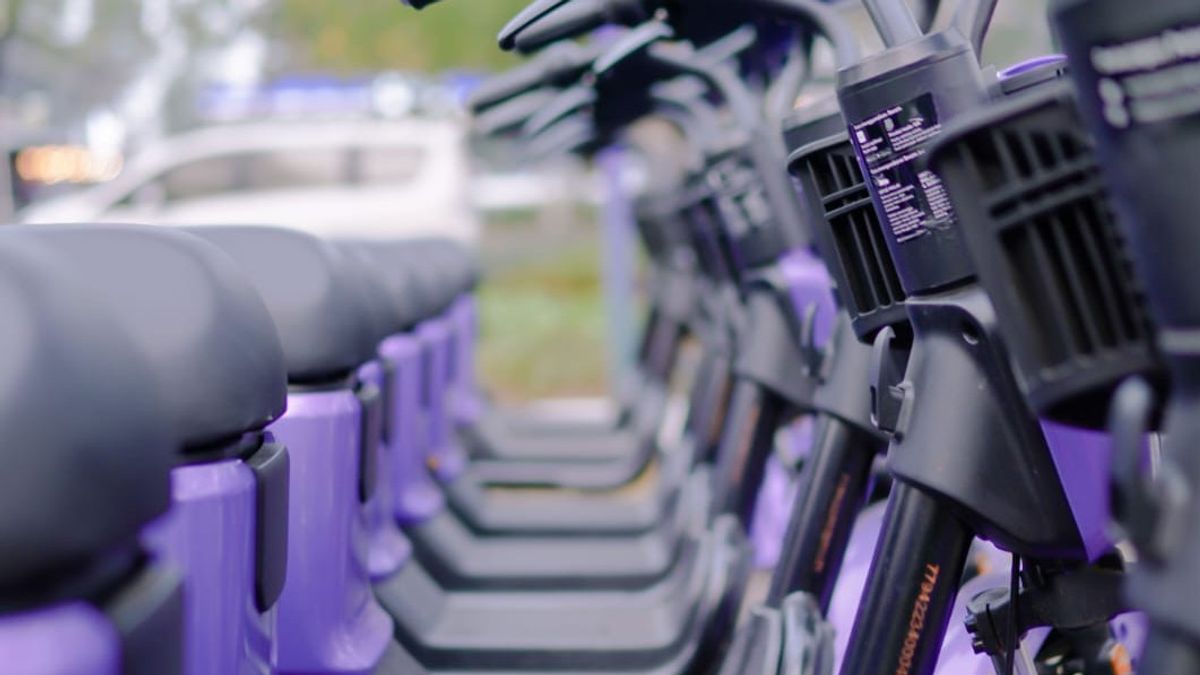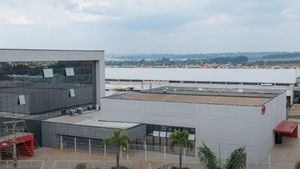JAKARTA - A healthy environment and a sustainable trend are everyone's dreams. However, environmental health problems, especially air pollution, are still a serious threat that we face every day. In 2023, there will be an increase in air pollution by 4 percent, and it is estimated that this figure will continue to grow until 2024.
Efforts to anticipate and reduce air pollution continue to be the main focus of the community, including in educational environments such as the University of Indonesia/UI.
After one year of operating at the University of Indonesia, BEAM Mobility, the largest micro-sharing mobility company in Asia Pacific, has successfully participated in actively reducing CO2 emissions within the University of Indonesia (UI). Since its launch on May 31, 2023, based on data obtained through the function of one of the real-time beam systems, with an average travel of 35 thousand trips per month, Beam Mobility has succeeded in changing the driving pattern of academic sivitas in the campus environment as well as helping reduce air pollution originating from conventional motorized vehicle exhaust.
Country Lead Beam Mobility Indonesia, Ricky Sjofyan, said, based on data received by his party during the one year period of operating at the University of Indonesia, the average travel is 35 thousand per month. This also means that BEAM Mobility has succeeded in contributing to helping reduce CO2 emissions.
"At the University of Indonesia, one of the leading educational institutions in Indonesia and one of the oldest universities with an impressive long history is a manifestation of Beam Mobility's commitment to supporting better air quality. In particular, UI is the first university to provide Beam Mobility services to its academic community, and providing a fleet of environmentally friendly vehicles has proven effective in reducing greenhouse gas emissions, especially in the UI campus area," he explained, in a written statement, Thursday, June 6.
In addition, after one year in collaboration with the University of Indonesia, said Ricky, his party saw an interesting pattern, where on weekdays, travel is dominated by routes from train stations to faculty or between faculties, while on weekends, users use more services for recreational purposes, such as sports.
"This is also in line with its main goal at the University of Indonesia, the Beam fleet is indeed a feeder for commuters to travel from public transportation locations, such as stations to the faculty area and vice versa," added Ricky.
SEE ALSO:
This achievement is also in line with UI's efforts to fulfill the Green Matrix, a green campus initiative that encourages the use of sustainable and environmentally friendly transportation. Beam Mobility is proud to be part of the green mobility solution on campus and will continue to be committed to contributing to creating a cleaner and healthier environment.
UI Director of Cooperation, Dr. Toto Pranoto, SE, MM said, after almost a year of collaborating with Beam Mobility, he saw the significant impact of the mobility trend of the academic community in the campus environment being easier and more comfortable.
"And this is of course in line with our Green Metric effort to provide a cleaner, safer, fun and minimal pollution campus environment," said Toto.
In Indonesia, the Mobility Beam has been present in several other educational areas such as Unpad and Telkom University, to residential areas such as Bintaro, Jababeka, Alam Sutera, Jakarta Garden City, Citra Raya, Sedayu City, BSD and several other residential areas. Beam Mobility has operated scooter and electric bicycle sharing services in more than 60 cities in Australia, New Zealand, Malaysia, Thailand, Korea, Turkey, and others.
The English, Chinese, Japanese, Arabic, and French versions are automatically generated by the AI. So there may still be inaccuracies in translating, please always see Indonesian as our main language. (system supported by DigitalSiber.id)















